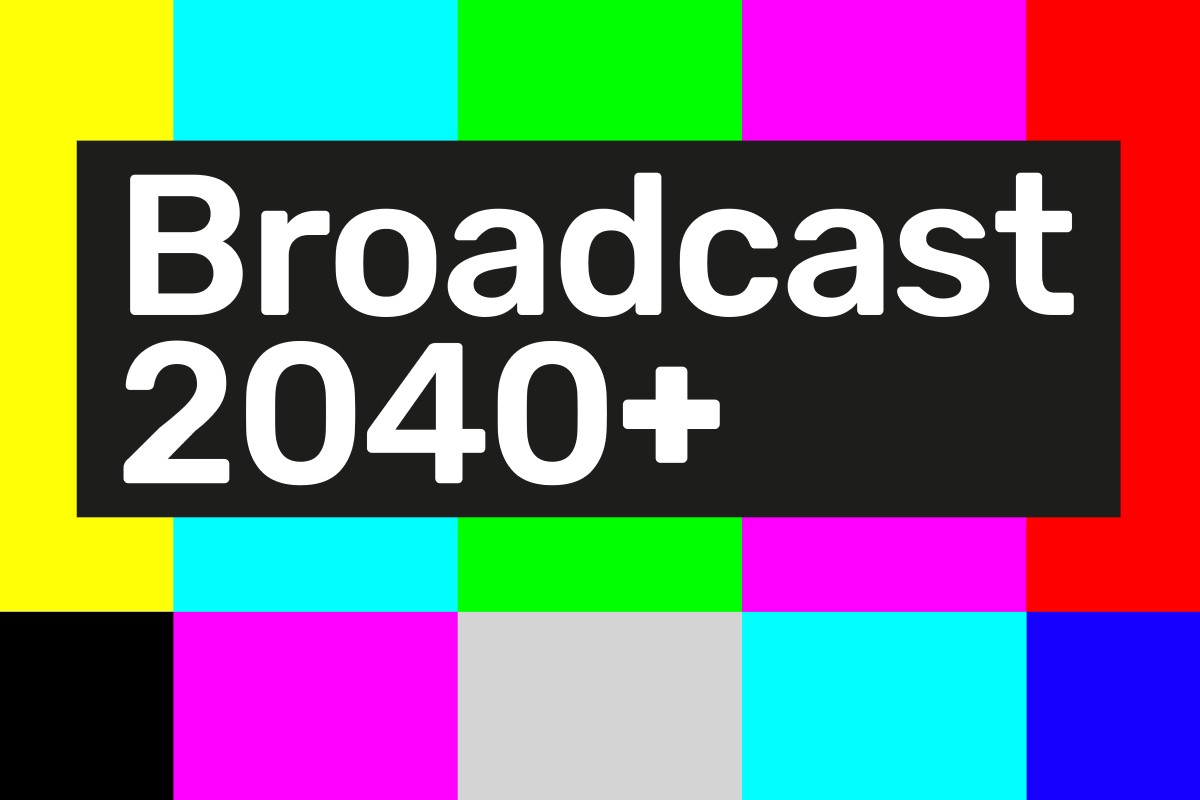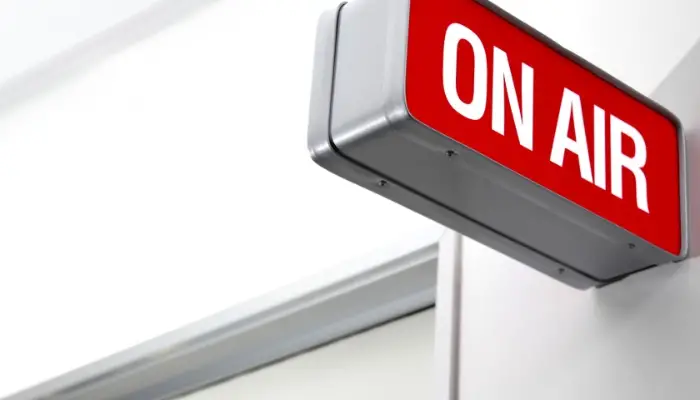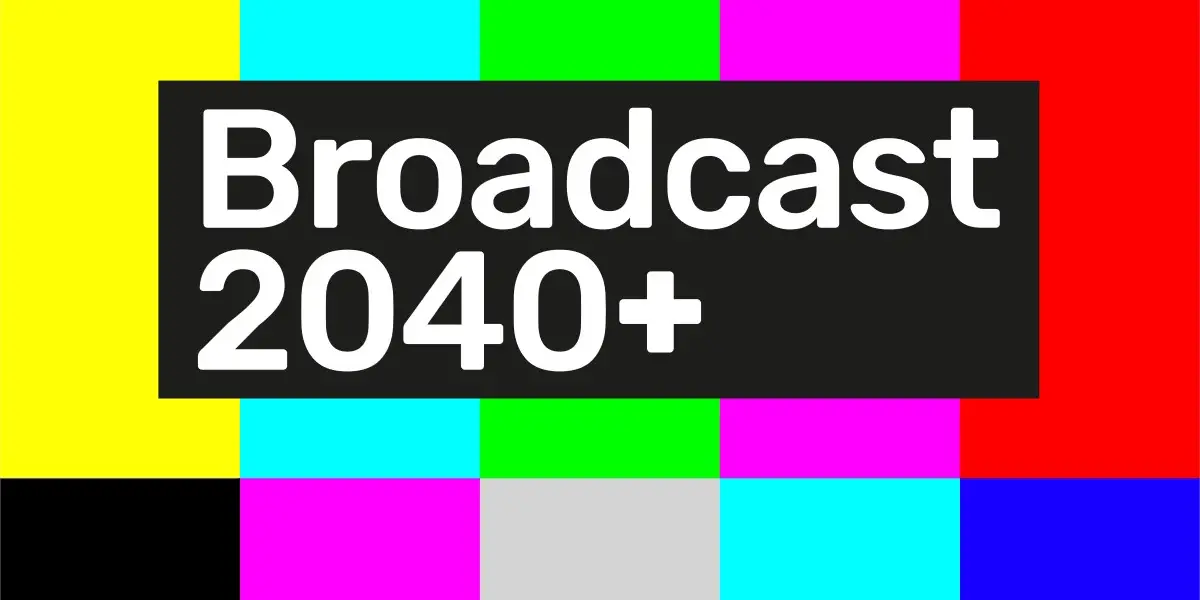A campaign to safeguard digital terrestrial TV and radio launches today as new research by Ipsos shows that 9 in 10 people (90%) across Great Britain want to see continued support for these services.
• New data from Ipsos shows that 9 in 10 people want to see continued support for Digital Terrestrial TV and broadcast radio
• More than 8 in 10 believe Government or local MPs should actively support the continued provision of these services. A similar proportion believe the BBC should be doing so
• Older people, lonely, less well-off and those in rural areas are most reliant on Freeview and radio services – which are universally accessible
• New Arqiva CEO launches Broadcast 2040+ campaign with groups including Age UK, Silver Voices, the Rural Services Network and the Voice of the Listener & Viewer to secure a commitment from Government on the future of broadcast
A campaign to safeguard digital terrestrial TV and radio launches today (23rd June 2022) as new research by Ipsos shows that 9 in 10 people (90%) across Great Britain want to see continued support for these services.
Digital terrestrial television (DTT) – better known as Freeview – is universally available across the UK. It doesn’t need a superfast broadband connection and there is no additional monthly subscription cost.
Today’s data on the extent of public support for these services comes as the Government and Ofcom – the regulator – make important decisions about the future of broadcast in the UK. It also follows the BBC’s recent announcement in their Mid-Term Charter Review that BBC4, CBBC and Radio 4 Extra will be moved online only.
The Ipsos research shows that 85% of people believe Government or local MPs should actively support the continued provision of broadcast TV and radio services into the future, while 83% believe the BBC should be doing so.
On current plans, there is only certainty of provision for TV and radio through an aerial until the early 2030s. There are a series of upcoming decisions on the long-term future of broadcast services. The first of these will be taking place at the World Radiocommunication Conference (WRC) next year, where countries will decide how much spectrum – radio frequencies used for broadcasting – should be allocated to TV and radio, and how much should be given to other technologies like mobile services.
Decisions at previous WRCs have already led to a reduction in the amount of spectrum allocated to digital terrestrial TV, with more and more services squeezed into fewer and fewer frequency bands.
For millions of people across the UK, universally available broadcast TV and radio services play a crucial role in their daily lives. Freeview is watched on around 35 million TV sets in the UK [BARB, 2020]. The Ipsos research shows that over half of adults in Great Britain have watched Freeview in the past year (56%), with 43% watching it at home every week. Around 40 million people aged 15 and over tune into radio each week according to RAJAR, with the majority listening through DAB or AM/FM.
The Ipsos research highlights that services received through an aerial are particularly important for vulnerable groups, including older people who may lack the digital skills and confidence to use streaming apps, and people living in rural areas where the lack of, or aged, network infrastructure means they are less likely to have a superfast broadband connection.
People struggling with the cost of living also depend on Freeview. Rising prices have led households to cut back on TV streaming services as people look for ways to save money, with more than half a million subscriptions cancelled for this reason in the first three months of 2022, according to Kantar.
 To ensure the needs of UK audiences who depend on these services continue to be met, TV & Radio infrastructure company Arqiva is launching the Broadcast 2040+ campaign today, in coalition with organisations including Age UK, Silver Voices, the Rural Services Network and the Voice of the Listener & Viewer.
To ensure the needs of UK audiences who depend on these services continue to be met, TV & Radio infrastructure company Arqiva is launching the Broadcast 2040+ campaign today, in coalition with organisations including Age UK, Silver Voices, the Rural Services Network and the Voice of the Listener & Viewer.
The campaign aims to secure a commitment from Government that DTT and broadcast radio will be safeguarded to 2040 and beyond.
The Ipsos research, released today, also shows the significant negative impact of the potential loss of broadcast TV and radio, particularly for those who are vulnerable. A quarter of people (25%) said that they would be “very lonely” if they lost their Freeview services, rising to more than 2 in 5 (44%) of those who are 65 and older and living alone.
When a fire at the Bilsdale mast in North Yorkshire left hundreds of thousands of homes without signal last year, over 8 in 10 (83%) people who lost all their TV channels recalled being ‘personally affected’. Many said they felt ‘angry’, ‘frustrated’, ‘isolated’, ‘depressed’, ‘disconnected’ and ‘unhappy’, and around 2 in 5 agreed that they found it very hard to keep up to date with what was happening in the world.
Whether it’s having the radio on over breakfast or watching the news during major global events, TV and radio binds us together as families and communities.
This national asset cannot be taken for granted and I’m proud of the difference broadcast services make to the lives of people up and down the country.
People across the UK – including the most vulnerable – depend on content that is available to them at all times, no matter where they live, and doesn’t need a subscription or a superfast internet connection.
That’s why we’re launching the Broadcast 2040+ campaign in coalition with other groups, to give a voice to viewers and listeners and encourage decision-makers to preserve these critical services for the long-term.
Shuja Khan, Arqiva’s new Chief Executive Officer.
I welcome this campaign which highlights the risks we face if we don't act now to secure the long-term future of terrestrial TV and radio.
Older people in their millions depend on terrestrial TV and radio as their main link with developments in the outside world, the value of which was shown with public health announcements beamed into every home during the pandemic. And older people rely on Freeview, as many cannot afford the cost of streaming services, especially with the cost-of-living crisis.
We face becoming a world that is totally dependent on internet access and communications, and without keeping alternative services in place we are putting ourselves at the mercy of events like internet failure or even sabotage.
At Silver Voices we are concerned that relying on a broadband-based radio and TV system would be less reliable and also much more costly – putting TV beyond the means of those on benefits or surviving on the state pension. A significant minority could end up excluded from the modern world, increasing loneliness and depression.
Dennis Reed, Director of UK-wide over-60s campaign group Silver Voices
While broadcast TV and radio is enjoyed by many across the UK, it is especially important for older audiences particularly those on low incomes living alone. Many older people value the current universal services and would struggle to afford alternatives such as subscriptions services.
Watching familiar shows or a public event, such as the recent Jubilee, helps older people feel more connected, giving them a sense of comfort in what can otherwise be an isolating world if you are unable to leave your house easily. It’s an important resource and we are happy to support Broadcast 2040+ in its work to protect it.
Caroline Abrahams, Charity Director at Age UK
Government often states a policy that no-one should be disadvantaged by where they live. The whole of the Government’s Levelling Up agenda can be argued to be based on this premise. So this issue of safeguarding DTT and radio is of fundamental importance to rural areas where the population is much older than the national average and the least well served by broadband connectivity. We strongly support the Broadcast 2040+ campaign.
Graham Biggs MBE, Chief Executive of The Rural Services Network
It is right that everyone in the UK should be able to benefit from the huge potential of broadcasting to inform, engage, and entertain with high quality content. And we shouldn’t take our TV and radio services – which are so admired around the world – for granted.
That’s why we strongly support the Broadcast 2040+ campaign to protect this fundamental national asset for generations to come. On behalf of the viewers and listeners who depend on these services, we must ensure that there is a firm commitment to the future of broadcast in the UK.
Colin Browne, Chairman of the Voice of the Listener & Viewer
Notes to Editors
• For further information and interview requests please contact Jess Seldon: jseldon@strandpartners.com
• For the Ipsos report, see here www.arqiva.com/Importance_of_Broadcast_summary.pdf.
• Arqiva is the national infrastructure provider which operates at the heart of the UK’s broadcast industry; helping transmit Digital Terrestrial Television (Freeview) and radio into people’s homes.
• Age UK is the country's leading charity dedicated to helping everyone make the most of later life and protecting the long-term interests of future generations. The charity provides companionship, advice and support at a national and local level for older people who need it most. The Age UK network comprises around 125 local Age UKs.
• Silver Voices is an independent UK-wide campaign organisation for the over-60s, providing a platform for senior citizens to express their views on issues such as pensions, health and social care and age discrimination. Major policies are settled through votes of all members to ensure they are representative. Silver Voices has 5,000 paid up members with thousands more supporting its social media interventions.
• The Rural Services Network works on behalf of their members to ensure that people in rural areas have a strong voice. They support member organisations through the sharing of best practice and rural expertise and advocating on their behalf for a fair deal for rural communities to maintain their social and economic viability.
• The Voice of the Listener & Viewer works to promote high quality broadcasting which maintains the democratic and cultural traditions of the UK. They support the independence, integrity and secure funding of the BBC and the work of broadcasters and programme makers who demonstrate commitment to the principles of public service broadcasting.
• Ipsos Research: On behalf of Arqiva, Ipsos interviewed a sample of 3,006 participants aged 18+; 2,005 across Great Britain and a further 1,001 living in postcodes most likely to have been served by the Bilsdale transmitter. Research was conducted via telephone interviews between 26th January and 4th March 2022. For more detail on the research approach please see the appendix of the full report www.arqiva.com/Importance_of_Broadcast.pdf.
News

Arqiva welcomes decision on national commercial digital radio multiplex licences

Arqiva to provide additional Covid support to its small local commercial station customers

Infrastructure works for 700MHz clearance programme completed ahead of schedule
